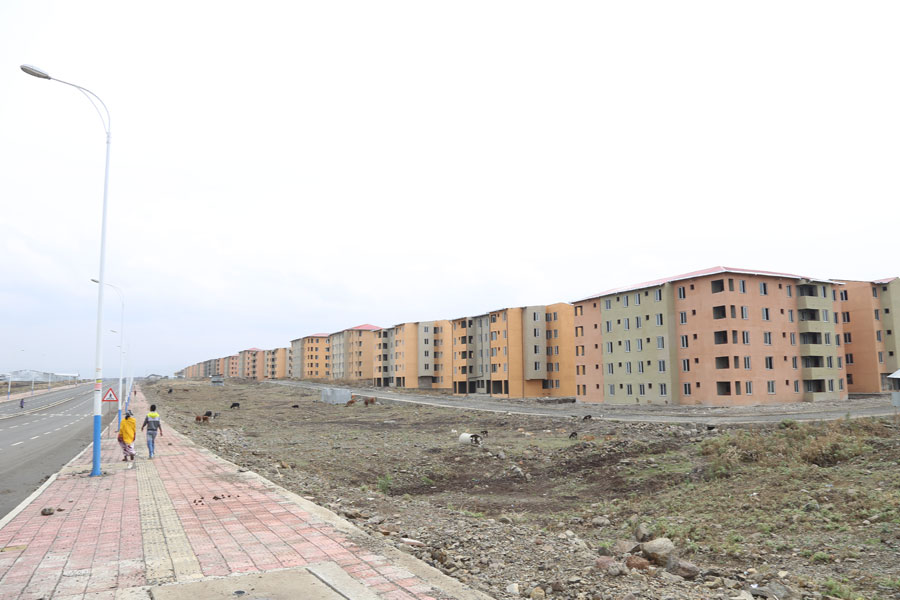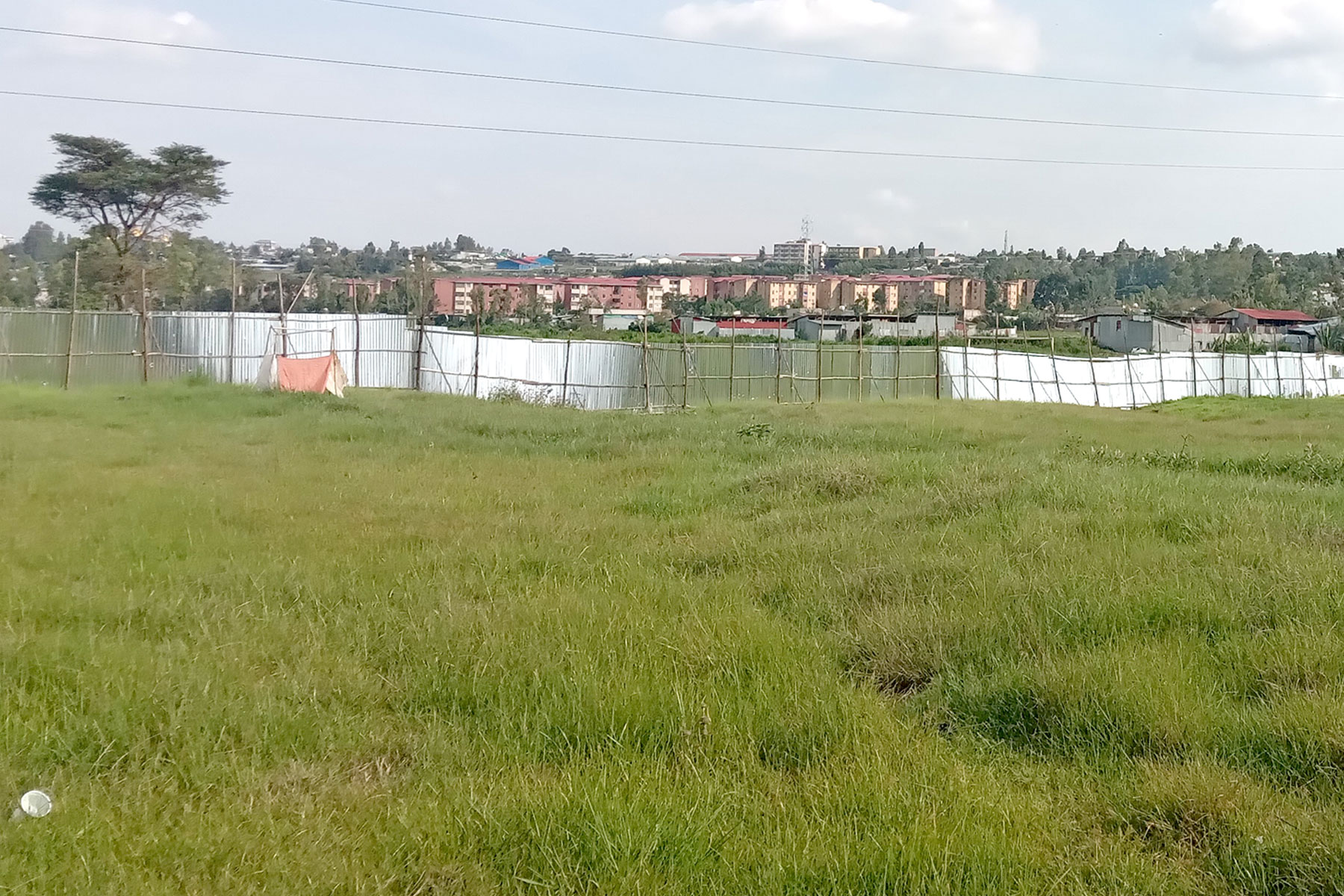
Apr 13 , 2019
By Haben Mehari
While Addis Abeba and Nairobi have much in common, the latter boasts a more affordable housing market. It is all thanks to a mortgage market, which Ethiopia should imitate, writes Haben Mehari (haben.mehari@aiesec.net), an entrepreneur and a graduate student at Addis Abeba University.
Nairobi and Addis Abeba have a great deal in common. Found in the same region, they are both headquarters of a plethora of international organisations. Addis Abeba is headquarters to the African Union and hosts 28 resident UN agencies including the United Nations Economic Commission on Africa. At the same time Nairobi hosts many multinational corporations, especially in the services sector, looking to grow their presence on the continent with the likes of Coca-Cola, Toyota, Standard Chartered Bank and General Electric. But that similarity ends when it comes to housing.
One would think that due to the large influx of expatriates in Nairobi, house rental prices would be higher or on par with Addis Abeba. But rental prices in the Ethiopian capital are 87.63pc higher than in Kenya, according to Numbeo, a crowd-sourced global database of consumer prices. Average monthly net salary in Nairobi is 354.4 dollars, while it is almost half as much in Addis Abeba, and local currency purchasing power in the former is two-thirds lower than in Nairobi.
Access to housing finance is key to making housing affordable. In the developed world, housing finance is synonymous with mortgage lending and represents one of the key building blocks of the banking sector. In less developed countries, mortgages are accessed by as little as one percent of the population. In Africa, the poor have invested most in their housing, and nearly 80pc of housing is self-financed.
Of the countries in Africa, South Africa has the highest mortgage penetration, currently at almost a third. Access to finance is fuelled by low lending rates, at 10pc, and the presence of a secondary mortgage market.
The reality in Addis Abeba could not be starker. Recently, the Commercial Bank of Ethiopia introduced a diaspora mortgage scheme with an equity contribution ranging from 20pc to 50pc and with an interest rate ranging from 8.5pc to 10.5pc with a maximum term of two decades. In the case of Zemen Bank, one would need to deposit a fifth of the price of the house then save another equal amount over a period of six to twelve months. It is then that one can get a loan for 60pc of the house's total price, which has to be repaid within seven years.
In the case of Kenya, their banks also provide home mortgages. Standard Chartered offers interest rates that go as low as 12.2pc, with an option for the comprehensive 105pc mortgage financing solution with repayments spread across a quarter of a century. Commercial Bank of Africa offers average mortgage rates at 12.9pc with flexible repayment periods of up to half a century. Kenya Commercial Bank offers mortgage interest rates of 13.3pc and all one has to show is proof of income and proof that they can meet 10pc of the financing.
These deals are incomparable with what the Ethiopian banks are providing. But it is still not enough for Kenya. The National Treasury announced that it would partner with the World Bank to set up the Kenyan Mortgage Refinancing Company (KMRC) following in the footsteps of Tanzania, Nigeria and Egypt.
KMRC, which is a public-private partnership owned by the government, commercial banks and financial co-operatives, is a non-bank financial institution only meant to provide long-term funding to mortgage lenders to enable borrowing as low as a five percent interest rate. This is in line with the government’s initiative of providing 500,000 homes a year until 2022 a reality.
With the disaster that has been the Integrated Housing Development program In Addis Abeba, Ethiopia is overdue for a different approach to improving housing. The Kenyan way is the way to go if we want to make housing in Ethiopia affordable, which would fit in nicely with this administration’s openness to the private sector.
PUBLISHED ON
Apr 13,2019 [ VOL
20 , NO
989]


Viewpoints | Dec 19,2018

Fortune News | Mar 09,2019

Fortune News | Jun 20,2025

Commentaries | Mar 16,2024

Viewpoints | Dec 29,2018

View From Arada | Jun 04,2022

Fortune News | Nov 02,2019

Radar | Apr 24,2021

Fortune News | Feb 04,2023


My Opinion | 131451 Views | Aug 14,2021

My Opinion | 127803 Views | Aug 21,2021

My Opinion | 125783 Views | Sep 10,2021

My Opinion | 123419 Views | Aug 07,2021

Dec 22 , 2024 . By TIZITA SHEWAFERAW
Charged with transforming colossal state-owned enterprises into modern and competitiv...

Aug 18 , 2024 . By AKSAH ITALO
Although predictable Yonas Zerihun's job in the ride-hailing service is not immune to...

Jul 28 , 2024 . By TIZITA SHEWAFERAW
Unhabitual, perhaps too many, Samuel Gebreyohannes, 38, used to occasionally enjoy a couple of beers at breakfast. However, he recently swit...

Jul 13 , 2024 . By AKSAH ITALO
Investors who rely on tractors, trucks, and field vehicles for commuting, transporting commodities, and f...

Jun 28 , 2025
Meseret Damtie, the assertive auditor general, has never been shy about naming names...

Jun 21 , 2025
A well-worn adage says, “Budget is not destiny, but it is direction.” Examining t...

Jun 14 , 2025
Yet again, the Horn of Africa is bracing for trouble. A region already frayed by wars...

Jun 7 , 2025
Few promises shine brighter in Addis Abeba than the pledge of a roof for every family...

Jun 29 , 2025
Addis Abeba's first rains have coincided with a sweeping rise in private school tuition, prompting the city's education...

Jun 29 , 2025 . By BEZAWIT HULUAGER
Central Bank Governor Mamo Mihretu claimed a bold reconfiguration of monetary policy...

Jun 29 , 2025 . By BEZAWIT HULUAGER
The federal government is betting on a sweeping overhaul of the driver licensing regi...

Jun 29 , 2025 . By NAHOM AYELE
Gadaa Bank has listed 1.2 million shares on the Ethiopian Securities Exchange (ESX),...